Lauren Wasser is a model and activist who has overcome incredible odds to become a prominent figure in the fashion industry. In 2012, Wasser lost both legs due to toxic shock syndrome (TSS) caused by a tampon. Despite this devastating setback, Wasser refused to let it define her. She has since become a vocal advocate for women’s health and safety, using her platform to raise awareness about the dangers of TSS and the need for better menstrual product regulation.
Lauren Wasser grew up in a family of models.
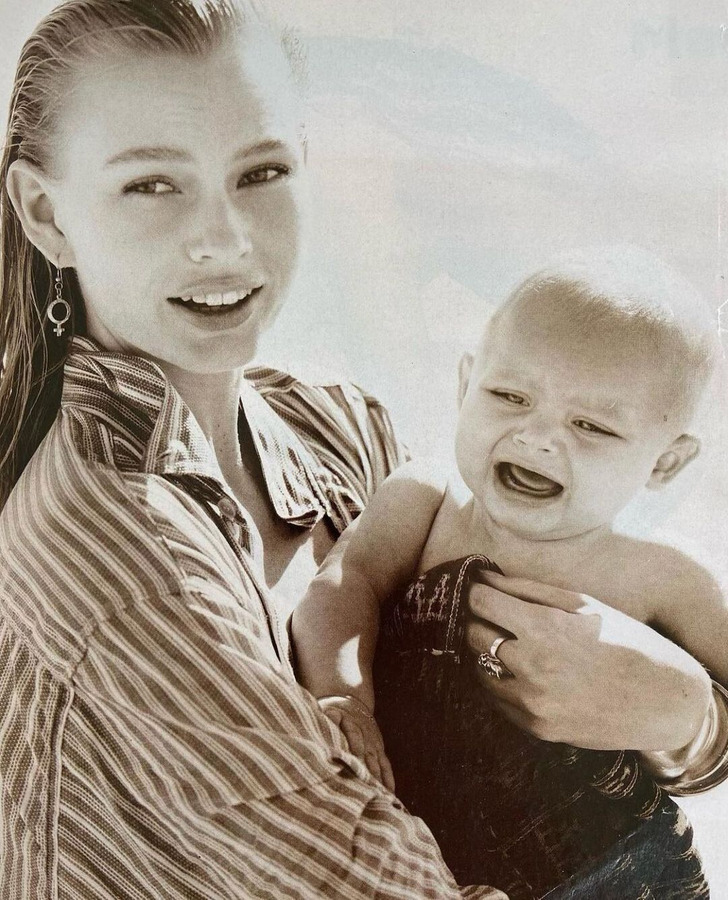
Lauren Wasser was born into the fashion industry in California on March 2, 1988. Her parents were both professional models, and she first appeared in Vogue alongside her mom when she was just 4 months old. Unsurprisingly, the young girl would be drawn to this career path.

She lived a full and active life until she became ill.

Lauren Wasser was a talented basketball player who even received a prestigious athletic scholarship. However, she decided to pursue her modeling career instead. Even so, she maintained an active lifestyle for several years.
Her world was turned upside down at the young age of 24.

AtThe Diary of a CEOpodcast, Lauren Wasser, age 35, shockingly revealed her harrowing experience by saying, “I lost both of my legs because of a tampon.”
The syndrome results from an overgrowth of Staphylococcus aureus bacteria in the body, which can produce a deadly toxin in the bloodstream. TSS first caught public attention in the United States in the late 1970s when several young women became gravely ill. By the 1980s, the syndrome was infecting people at a rate of approximately 6 in 100,000.
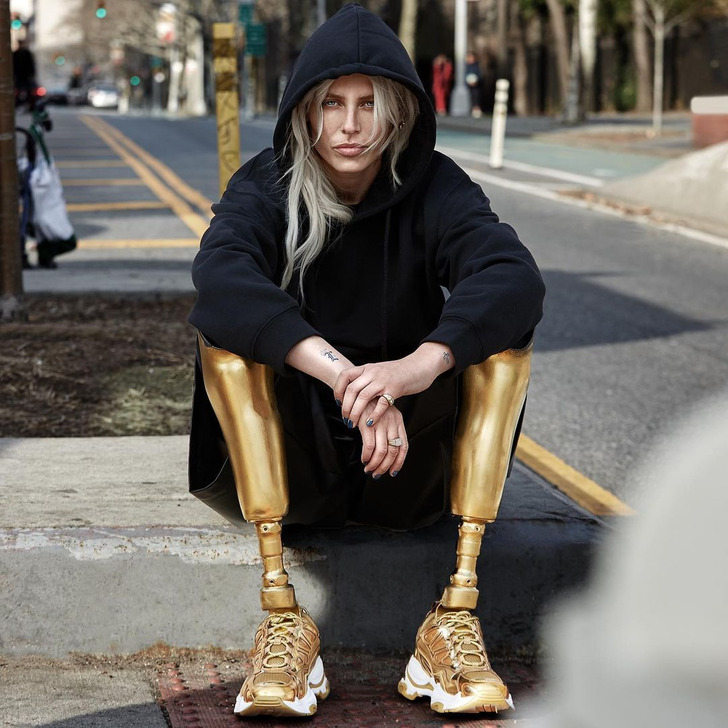
It all started with flu-like symptoms, followed by renal failure and, ultimately, two heart attacks, all due to the rare and life-threatening syndrome. With a slim chance of surviving, doctors had to put Wasser into a medically-induced coma to save her life.
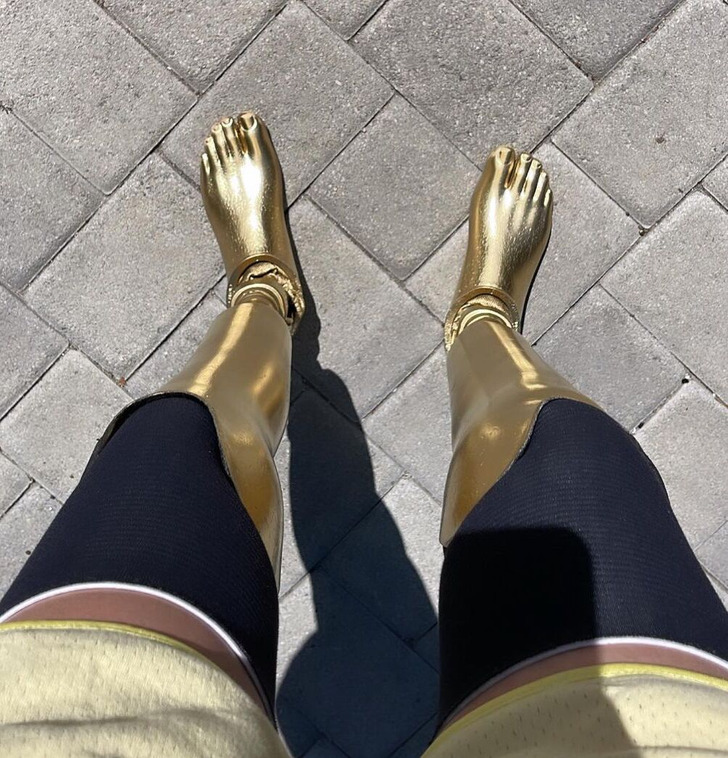
After regaining consciousness a week and a half later, Lauren Wasser shared in a poignant interview, “I woke up a week and a half later and had no idea what had even happened. They pumped me full of 80 pounds of fluid.” Tragically, her situation worsened as gangrene spread, causing her right leg and left foot to be engulfed in searing pain. “From there, my feet were on fire, and gangrene set into my right leg and my left foot. There was no option. I had to amputate my right leg.” Then, in 2018, she faced another heartbreaking setback as her left leg had to be amputated.

Lauren Wasser advocates for TSS awareness and safer menstrual products.

As she spoke out about the dangers of TSS, Lauren Wasser emphasized the harmful constituents of tampons, stating, “[They] are made using chlorine bleach, dioxin, and synthetic fibers, which create the perfect storm in our bodies.”
“I have been working with a mother who lost her teenage daughter to TSS when she was 18 — Madeline Mosby. Through the darkness and trauma of that, we have joined forces in wanting to change the world.”
She returned to modeling and became the “girl with the golden legs.”

“My whole job has been to show that you are enough, and you’re beautiful in the skin you’re in and highlighting your scars and the things that you hate most.” With this resolution in mind, Lauren Wasser decided to return to the modeling industry and started looking for gigs again. While many of her colleagues supported her decision to return to modeling, some doubted whether she could make a successful comeback.
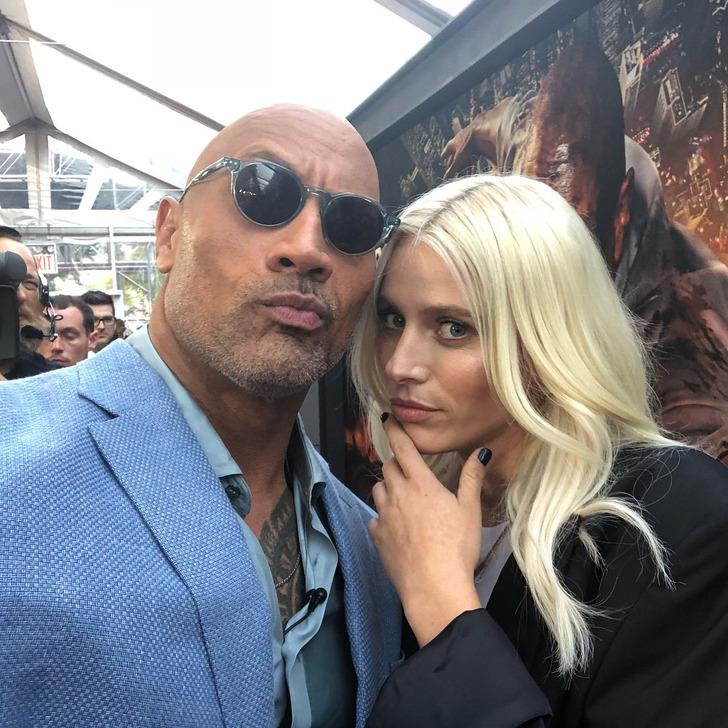
Wasser decided to choose gold-toned prosthetics instead of prosthetics that matched her skin color after entirely accepting her new condition. “Making it my own and giving it life, so to speak, changed my perception,” she said, explaining her choice in an interview. Thus, she became the “girl with the golden legs” and started walking for famous designers again.
Currently, she’s still taking the fashion world by storm and fighting for more inclusivity.
Following the amputation of her left leg due to chronic pain, the model is now able to lead a more active lifestyle. She has resumed playing basketball, which is her passion and is even preparing for a marathon shortly. Additionally, Wasser’s modeling career is flourishing as she walked for Gabriela Hearst and Louis Vuitton in 2022 and was featured in Lacoste, Furla, and Shiseido campaigns.

In addition to her thriving modeling career, Wasser remains dedicated to advocating for inclusivity and acceptance of individuals with disabilities and diverse conditions within the fashion industry. Her activism and contributions to the fashion world have earned her a spot on Harper’s Bazaar’s special-edition Women of the Year 2022 covers, alongside other inspiring women.” I’ve worked so hard to be myself and never take ‘no’ for an answer,” is how Lauren Wasser sums up her success.
Lauren Wasser’s incredible journey from tragedy to triumph is just the beginning of a new era in modeling. Stay tuned to learn about 16 more unusual models who are revolutionizing the beauty industry.
Preview photo credit theimpossiblemuse / Instagram, theimpossiblemuse / Instagram
My BIL Asked Me to Bake a Cake for His Birthday Party — When I Saw the Decorations, I Was Stunned by His Lies

For years, Jacqueline’s in-laws dismissed her as “not good enough.” Then, out of the blue, her brother-in-law asked her to bake a cake for his birthday. Hoping for acceptance, she arrived at the party, only to be mortified by the decorations and the true reason for the celebration.
My husband Tom’s family never truly accepted me. From the moment we got engaged, I was an outsider. Every family gathering was a battlefield, and I was always the walking wounded.
I remember the first time my mother-in-law, Alice, looked me up and down with that trademark condescending smile and said it outright: “You’re sweet, dear, but Tom… he’s always been ambitious. You’re just so… simple.”
I heard it loud and clear. I WASN’T GOOD ENOUGH.

Portrait of a distressed woman | Source: Midjourney
Jack, Tom’s brother, was worse. At every family gathering, his favorite sport was undermining my confidence.
“Hey, Jacqueline,” he’d drawl, “I didn’t realize ‘professional cake decorator’ was such a demanding career. Must be exhausting, all that frosting and free time!”
When I’d try to defend myself, to show some spark of the intelligence and strength I knew I possessed, Jack would lean back, his hands raised in mock surrender. “It’s just a joke, lighten up!”
But we both knew it wasn’t a joke. It was a calculated attack, a smile wrapped around a blade, designed to keep me off-balance and uncertain.

A man staring at someone | Source: Midjourney
Whenever I brought up such instances to Tom, his response was always the same predictable, placating, almost desperate attempt to smooth over the rough edges.
“They don’t mean it, Jackie,” he’d say. “They’re just set in their ways.”
But his words rang hollow. The cold stares, the sharp whispers, the subtle exclusions… they spoke volumes that his gentle reassurances could never silence.
I was an outsider. A perpetual guest in a family that had already decided I didn’t belong.
The ache of constant rejection had turned me into a dessert-making machine, each carefully crafted treat a desperate plea for acceptance.

An anxious woman | Source: Midjourney
Baking was my silent love letter, my most vulnerable communication in a family that seemed determined to keep me at arm’s length.
Every holiday became a performance of perfection. On Thanksgiving, I’d arrive early, my hands trembling slightly as I offered to help Alice in the kitchen.
But her dismissive response was a familiar wound. “I’ve got it, Jacqueline. Why don’t you set the table instead?”
The words were polite, but the message was clear: I didn’t belong. Not yet.
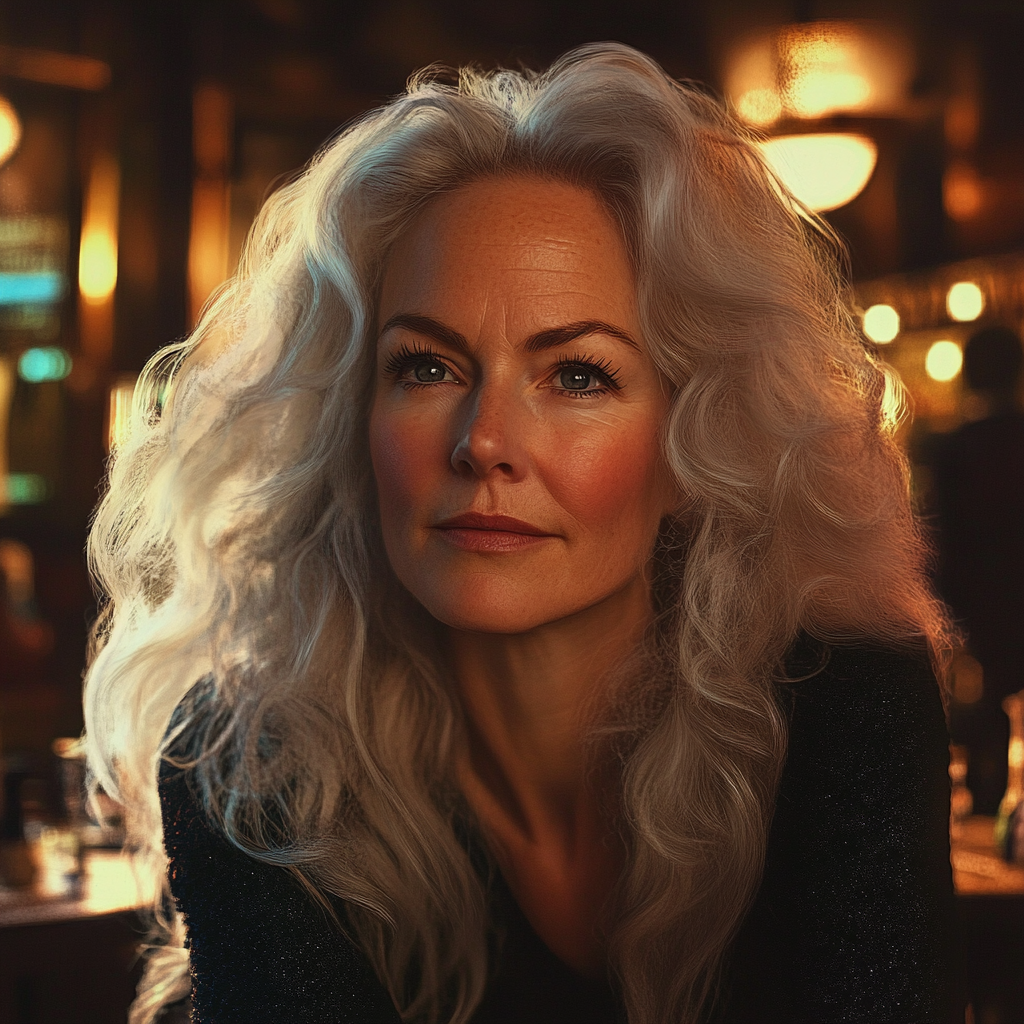
An older lady smiling | Source: Midjourney
Christmas was no different. Handmade gifts wrapped with hope and precision, each stitch and fold a testament to my desire to be seen and loved. But they were always met with forced smiles, quick glances, and moments later… forgotten.
Baking became my language of love, my desperate attempt to translate my worth into layers of cake, swirls of frosting, and perfectly piped decorations.
I believed (foolishly, perhaps) that if I could just create something extraordinary enough, they would finally see me. See my heart. And my devotion to this family.
But love, I was learning, isn’t measured in calories or confectioner’s sugar.

A smiling woman baking a cake | Source: Midjourney
So when Jack’s text arrived one night, unexpected and unusually cordial, my heart skipped a beat.
“Hey, Jacqueline, could you make a cake for my birthday this weekend? Nothing fancy, just plain. Thanks.”
Plain? The word echoed in my mind. Jack, who always critiqued and constantly found something lacking, wanted something plain? A lifetime of family dynamics screamed a warning, but a tiny, hopeful part of me wondered: Was this a peace offering? An olive branch?
I couldn’t say no. I was the family baker, after all. The one who existed in their world through carefully crafted desserts and silent endurance.

A cheerful woman holding a cellphone | Source: Midjourney
I poured every ounce of my pain, hope, and desperation into that cake. Three tiers of soft blue and silver buttercream, adorned with hand-painted fondant flowers so delicate they seemed to breathe.
It was elegant and understated. A masterpiece that represented everything I’d ever tried to be for this family. Perfect. Unimpeachable. Invisible.
Saturday arrived, and it was time to deliver the cake to the address Jack had texted me. But the moment I stepped into the event space, my heart CRACKED.

A stunned woman | Source: Midjourney
“Bon Voyage!” signs glittered in gold and white. My hands trembled, the cake suddenly heavy with more than just buttercream and sugar.
Photos lined the walls… of Tom and another woman, captured in moments that sliced through my heart like the sharpest knife. A beach scene. Laughter. Cherry blossoms. Her head on his shoulder. The intimacy was undeniable. She was his… mistress.
This wasn’t a birthday party. This was my… funeral.

A couple on the beach | Source: Unsplash
Jack approached with a predator’s grace, that familiar smug grin spreading across his face like a disease. “Nice cake,” he drawled, eyes glinting with a cruelty that went beyond simple malice. “Really fits the theme, don’t you think?”
My hands gripped the cake board so tightly I could feel my knuckles turning white. Rage, betrayal, and a devastating sense of humiliation battled inside me. I wanted to scream. To throw the cake. To shatter something — anything — to match the destruction happening inside my heart.
“What is this?” I gasped.
“Tom’s going-away party!” Jack said. “Didn’t he tell you? That he was going to… leave you?!”

An utterly stunned woman | Source: Midjourney
Tom approached, hands shoved deep in his pockets. The woman from the photos stood behind him, her hand possessively on his arm. A territorial marking I was meant to see.
“Jacqueline…” He sighed, as if I were an inconvenience. A problem to be managed.
“What’s going on?” I mustered every ounce of my strength to spit out the words.
“It’s not working between us,” he said, refusing to meet my eyes. “We’ve grown apart. I’m moving. With her. To Europe. The divorce papers will be ready soon.”
Divorce papers. Those clinical, cold words that would erase our years together.

Divorce papers on a table | Source: Pexels
I looked around the room. Alice. Jack. The rest of the family. Each face a mirror of smug satisfaction and calculated avoidance. They’d known. All of them. This wasn’t just Tom’s betrayal. It was a family conspiracy.
“You asked me to bake this cake to celebrate your brother’s affair?” I asked.
Jack’s final words landed like a punch. “You’re good at it. Why not?”
The cake in my hands suddenly felt like a doomed offering… something beautiful, carefully crafted, created with love, about to be destroyed.
And I was the only one who didn’t see it coming.

A woman holding a birthday cake | Source: Midjourney
For a moment, the walls threatened to crush me. Panic clawed at my throat. I wanted to scream. Cry. And confront everyone. But then something deep inside me crystallized.
If they wanted a performance, I would give them a masterpiece.
“You’re right, Jack,” I said, smiling. “The cake does fit the theme perfectly.”
Silence descended. Every eye followed me as I carried the cake to the center table.
“Ladies and gentlemen,” I began, “this cake is a masterpiece. Crafted with patience, care, and love… qualities I brought to this family from the start.” My gaze locked with Tom’s, fury burning in my eyes. “It’s beautiful on the outside, but as with all things, the real test is beneath the surface.”

A man in a room | Source: Midjourney
I cut a slice and offered the first piece to Tom. “For you,” I said. “A reminder that sweetness doesn’t just happen. It takes effort, something you clearly forgot.”
The mistress received her slice with a forced smile that faltered under my gaze. “And for you,” I murmured, my voice dripping with a honey-coated venom, “a taste of what it takes to maintain what you’ve stolen.”
Jack received the final slice. “Thanks for inviting me to this unforgettable event. But I’ve had my share of people who only see me when it suits them.”
The knife clattered against the plate. I turned, walked away, and didn’t look back.

A heartbroken woman staring at someone | Source: Midjourney
Days passed. Silence filled the small rented apartment I’d moved into. When my best friend Emma’s call came a few days later, it brought a different kind of storm.
“Have you seen what’s happening?” she asked, a sharp edge of triumph cutting through her words.
“What do you mean?”
“Tom’s mistress posted everything online. And I mean… EVERYTHING!” Emma laughed. “Her social media’s been a goldmine of disaster.”
I laughed as she shared screenshots of the post. “Bon Voyage, my love! Can’t wait to start this new chapter together 

A delighted woman seeing her phone | Source: Midjourney
What she didn’t know was that one of Tom’s colleagues followed her account. Those innocent, boastful posts traveled fast, landing directly in the inbox of Tom’s boss, who was decidedly not impressed.
Turned out, Tom had fabricated an elaborate lie about relocating for “family reasons,” conveniently omitting his affair and his plans to abandon his current professional responsibilities. His employer’s response was swift and brutal: they rescinded the overseas job offer and terminated his employment.
But the universe wasn’t done serving its cold plate of justice.

An upset man holding his head | Source: Pixabay
When Tom’s girlfriend discovered the cushy international job had evaporated, she dropped him faster than a bad habit. Just like that, his carefully constructed fantasy crumbled.
No relocation. No romance. No job.
Jack, too, discovered that actions have consequences. The social circle that had once welcomed him now turned its back. Whispers became silence, and invitations dried up like autumn leaves.
And in the silence of my small rented apartment, I felt something unexpected: not anger, not even satisfaction. Just a strange, calm acceptance that sometimes, the universe has its own way of balancing the scales.

A woman smiling | Source: Midjourney
And guess what? Tom’s text arrived without warning a week later.
“I made a mistake,” he wrote. Those four words, so small, yet attempting to collapse an entire landscape of betrayal into a moment of convenient remorse.
I stared at the screen, feeling the familiar rage rising. Not the explosive anger from the party, but a deep, calm fury. The kind that burns slow and steady, like embers that never quite go out.
My eyes drifted to the kitchen counter. The cake stand sat empty, a silent witness to my agony. Slowly and deliberately, I raised my phone and snapped a picture of it.

An empty cake stand in the kitchen | Source: Midjourney
My response to Tom was simple:
“All out of second chances!”
My heart felt lighter than it had in days as I hit send.
This wasn’t my failure. The rejection and betrayal… none of it was my fault. My worth wasn’t determined by their acceptance or rejection. I was more than their whispers, more than the cake I baked, and more than the role they tried to confine me to.
Life was waiting. And I was ready to move forward… unburdened and unbroken.

A cheerful woman smiling | Source: Midjourney
This work is inspired by real events and people, but it has been fictionalized for creative purposes. Names, characters, and details have been changed to protect privacy and enhance the narrative. Any resemblance to actual persons, living or dead, or actual events is purely coincidental and not intended by the author.
The author and publisher make no claims to the accuracy of events or the portrayal of characters and are not liable for any misinterpretation. This story is provided “as is,” and any opinions expressed are those of the characters and do not reflect the views of the author or publisher.




Leave a Reply